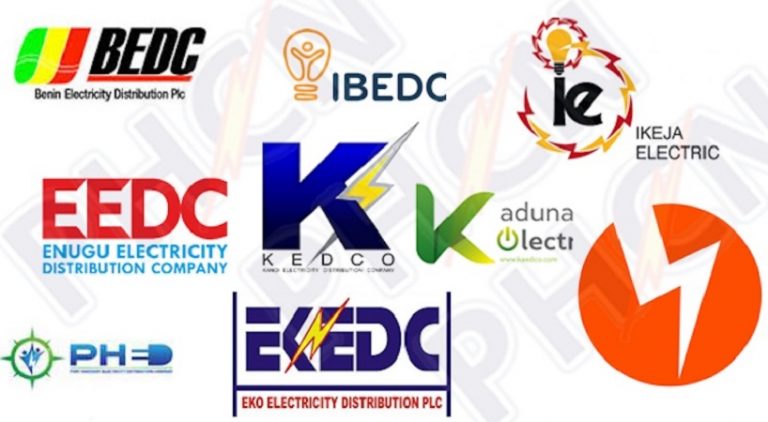
The Nigerian Electricity Regulatory Commission (NERC) has revealed that Electricity Distribution Companies (DisCos) in the country collected N509.84 billion in the fourth quarter of 2024 (Q4 2024), marking an increase from previous quarters despite $8.4 million owed by Togo and Benin.
The report, released on NERC’s website, disclosed that DisCos billed customers a total of N658.40 billion during Q4 2024, achieving a collection efficiency of 77.44 percent. This marks an improvement compared to the 74.55 percent recorded in Q3 2024, where N466.69 billion was collected from the N626.02 billion billed.
DisCo Performance: Eko Leads, Jos Struggles
A breakdown of the DisCos’ performance shows that Eko DisCo recorded the highest collection efficiency at 90 percent, followed by Ikeja DisCo at 82.63 percent. These two companies retained their positions as the best-performing DisCos in Nigeria.
Register for Tekedia Mini-MBA edition 19 (Feb 9 – May 2, 2026).
Register for Tekedia AI in Business Masterclass.
Join Tekedia Capital Syndicate and co-invest in great global startups.
Register for Tekedia AI Lab.
At the other end, Jos DisCo recorded the lowest efficiency rate at 49.68 percent, reflecting persistent challenges in revenue collection. Abuja DisCo also experienced a decline, contributing to the wider issue of collection inefficiencies in certain regions.
NERC attributed the overall improvement in revenue collection to enhanced metering initiatives, stricter enforcement measures by DisCos, and increased regulatory oversight. However, it noted that issues such as non-payment by customers, energy theft, and inadequate infrastructure remain major obstacles to further progress.
However, while the increase in collection efficiency suggests a better revenue stream for DisCos, it has not translated into improved power supply. Nigerians continue to experience frequent blackouts, unstable voltage, and poor service delivery from electricity providers.
Amid these concerns, the Minister of Power recently announced that the government intends to review the current Band A electricity tariff, admitting that it has failed to attract the expected level of investment into the power sector. The tariff, which was introduced as part of the service-based electricity pricing model, aimed to charge higher rates for consumers who receive at least 20 hours of power daily.
Benin and Togo Owe Nigeria $8.84 Million for Electricity
While local DisCos continue to grapple with revenue challenges, Nigeria is also dealing with unpaid electricity debts from neighboring countries. Benin Republic and Togo owe Nigeria a total of $8.84 million for electricity consumed in the fourth quarter of 2024.
According to NERC’s report, six international bilateral customers were supplied electricity by Nigerian power generation companies (GenCos) during Q4 2024. These international customers were billed a cumulative $14.05 million by the Market Operator but only managed to remit $5.21 million, translating to a remittance performance of 37.08 percent.
Paras-SBEE in Benin Republic was billed $2.65 million but has yet to make payments. Paras-CEET, also in Benin, was billed $1.64 million and has not paid. Transcorp-SBEE (Ughelli) in Benin Republic was billed $3.59 million but only paid $1.71 million. Transcorp-SBEE (Afam 3) was billed $1.2 million but only remitted $0.90 million. Odukpani-CEET in Togo still owes $2.37 million for power consumed.
The report showed that only Mainstream-NIGELEC fully paid its invoice of $2.60 million. It further indicated that some bilateral customers made partial payments to clear previous debts from earlier quarters. Paras-CEET, Paras-SBEE, and Transcorp-SBEE collectively paid a total of $2.98 million towards outstanding invoices from prior periods.
Local Debt and Special Customer Defaults
On the domestic front, bilateral customers within Nigeria were billed N1.98 billion in Q4 2024 but only managed to remit N1.25 billion, representing a remittance efficiency of 63.36 percent.
Ajaokuta Steel Company and its host community once again failed to make any payments toward their outstanding electricity debts, which amounted to N1.27 billion for power supplied by the Nigeria Bulk Electricity Trader (NBET) and N110 million for Market Operator invoices.
NERC described the non-payment by Ajaokuta Steel as a longstanding issue, stating that it has formally communicated the need for government intervention. Despite repeated attempts to address this problem, no concrete solutions have been implemented to recover the outstanding funds.
Financial Growth Amid Systemic Challenges
The increase in DisCos’ revenue collection efficiency indicates a gradual improvement in revenue mobilization within Nigeria’s electricity sector. However, experts argue that financial gains will not translate into meaningful progress unless deeper structural issues are addressed.
While DisCos have recorded increased collections, the financial health of the power sector remains fragile due to high Aggregate Technical, Commercial, and Collection (ATC&C) losses. Many DisCos continue to struggle with infrastructure deficits, metering gaps, and energy theft, which erode profitability.
In response, stakeholders are advocating for several reforms to enhance revenue collection and improve service delivery, including expanding metering programs under the National Mass Metering Initiative (NMMI) to address estimated billing complaints, introducing digital payment solutions to encourage easier and more transparent customer remittances, and imposing stronger penalties for defaulting customers, both locally and internationally, to reduce unpaid electricity debts.



